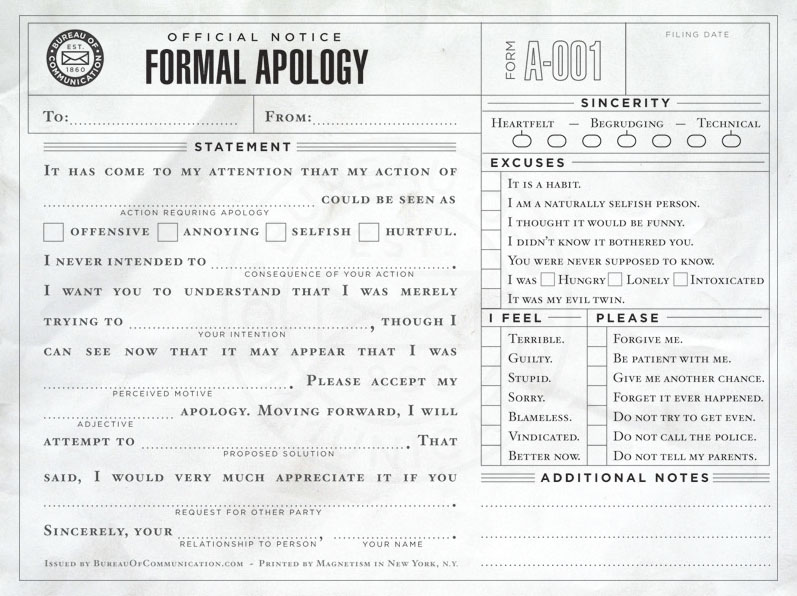Episódio clássico "Vida Cigana", de 1945, do desenho animado Super Mouse (Mighty Mouse). Dublado em português. Distribuição: Network. Versão brasileira: VTI/Rio
Thursday, June 26, 2008
Mighty Mouse
(Portuguese dubbing)
Monday, June 23, 2008
Right Brain vs Left Brain Test

THE Right Brain vs Left Brain test ... do you see the dancer turning clockwise or anti-clockwise?
If clockwise, then you use more of the right side of the brain and vice versa.
Most of us would see the dancer turning anti-clockwise though you can try to focus and change the direction; see if you can do it.
LEFT BRAIN FUNCTIONS
uses logic
detail oriented
facts rule
words and language
present and past
math and science
can comprehend
knowing
acknowledges
order/pattern perception
knows object name
reality based
forms strategies
practical
safe
RIGHT BRAIN FUNCTIONS
uses feeling
"big picture" oriented
imagination rules
symbols and images
present and future
philosophy & religion
can "get it" (i.e. meaning)
believes
appreciates
spatial perception
knows object function
fantasy based
presents possibilities
impetuous
risk taking
From the Herald Sun
Thanks to SS
Where the Hell is Matt? (2008)
Where the Hell is Matt? (2008) from Matthew Harding on Vimeo.
Matt's website.
Matt is a 31-year-old deadbeat from Connecticut who used to think that all he ever wanted to do in life was make and play videogames. Matt achieved this goal pretty early and enjoyed it for a while, but eventually realized there might be other stuff he was missing out on. In February of 2003, he quit his job in Brisbane, Australia and used the money he'd saved to wander around Asia until it ran out. He made this site so he could keep his family and friends updated about where he is.
A few months into his trip, a travel buddy gave Matt an idea. They were standing around taking pictures in Hanoi, and his friend said "Hey, why don't you stand over there and do that dance. I'll record it." He was referring to a particular dance Matt does. It's actually the only dance Matt does. He does it badly. Anyway, this turned out to be a very good idea.
A couple years later, someone found the video online and passed it to someone else, who passed it to someone else, and so on. Now Matt is quasi-famous as "That guy who dances on the internet. No, not that guy. The other one. No, not him either. I'll send you the link. It's funny."
The response to the first video brought Matt to the attention of the nice people at Stride gum. They asked Matt if he'd be interested in taking another trip around the world to make a new video. Matt asked if they'd be paying for it. They said yes. Matt thought this sounded like another very good idea.
In 2006, Matt took a 6 month trip through 39 countries on all 7 continents. In that time, he danced a great deal.
The second video made Matt even more quasi-famous. In fact, for a brief period in July, he was semi-famous.
Things settled down again, and then in 2007 Matt went back to Stride with another idea. He realized his bad dancing wasn't actually all that interesting, and that other people were much better at being bad at it. He showed them his inbox, which, as a result of his semi-famousness, was overflowing with emails from all over the planet. He told them he wanted to travel around the world one more time and invite the people who'd written him to come out and dance too.
The Stride people thought that sounded like yet another very good idea, so they let him do it. And he did. And now it's done. And he hopes you like it.
Matt lives in Seattle, Washington with his girlfriend, Melissa, and dog, Sydney. He hasn't had a real job since Stride called him up. Matt doesn't mind working, but he doesn't much care for having to show up at the same place every day.
Matt is not rich. Matt also doesn't have some magical secret for traveling cheaply. He does it pretty much the same way everybody else does.
Matt thinks Americans need to travel abroad more.
Friday, June 20, 2008
Mars Phoenix Tweets: "We Have ICE!"
There is water ice on Mars within reach of the Mars Phoenix Lander, NASA scientists announced Thursday.
Photographic evidence settles the debate over the nature of the white material seen in photographs sent back by the craft. As seen in lower left of this image, chunks of the ice sublimed (changed directly from solid to gas) over the course of four days, after the lander's digging exposed them.
Their suspicions about water ice beneath the surface of Mars confirmed, scientists and the world will have renewed interest in the outcome of the soil analyses currently being conducted by the lander.
The samples are being examined for traces of organic molecules, among other substances, but the lander does not have instruments that could directly detect life.
More.
Thursday, June 19, 2008
Man Who Used Stick To Roll Ball Into Hole In Ground Praised For His Courage

SAN DIEGO—A man who used several different bent sticks to hit a ball to an area comprised of very short grass surrounding a hole in the ground was praised for his courage Monday after he used a somewhat smaller stick to gently roll the ball into the aforementioned hole in fewer attempts than his competitors. "What guts, what confidence," ESPN commentator Scott Van Pelt said of the man, who was evidently unable to carry his sticks himself, employing someone else to hold the sticks and manipulate the flag sticking out of the hole in the ground while he rolled the ball into it. "You have to be so brave, so self-assured, so strong mentally to [roll a ball into a hole in the ground]. Amazing." The man in question apparently hurt his knee during this activity.
From The Onion.
Cool Custom Partitions

Are you one of the many couples who didn't quite make it into that two-bedroom apartment before baby arrived? Still looking for a bit of privacy without losing light, paying for minor construction or putting up a shoji screen? You might just be interested in the Nomad System. No need for tools or hardware here - just construct your partition using these recycled, double-wall cardboard panels. While it's not sound proof, at $56 for 24 modules, it's a heck of a lot cheaper than a temporary wall. Just think! When you finally do make your way to that dee-luxe apartment in the sky, you won't have to spackle the old one!
More.
How The Brain Can Protect Against Cancer

Scientists have been aware for many years that if cancer patients are not able to deal with the stress associated with being sick, the cancer will progress faster than in calmer patients. To counteract this phenomenon, physicians encourage treatments that help cancer patients handle their stress. Scientists theorized that the stress relief may have come as a result of increased beta-endorphin peptide (BEP), the "feel good" hormones in the brain that are released during exercise, a good conversation, and many other aspects of life that give humans pleasure.
More.
Golf Glasses Allow Faster Ball Spotting

The Visiball lens technology combines basic principles of physics, visual physiology, and perception to significantly enhance the visibility of your golf ball.
The underbrush of a golf course is predominantly made up of browns, greens, and blacks (mostly reflecting from dirt, grass, bushes, twigs, etc). Visiball Golf Ball Finders use special blue filters that eliminate all visible wavelengths except those at the blue end of the spectrum. These special filters virtually eliminate light reflecting off grass and the dark objects of the underbrush, thus high lighting white golf balls. Most dark objects show up only as outlines while the white golf ball appears to glow with a slight blue tint.
More.
McCain to Drop Out?

When the Republicans choose their candidate on September 4th, there is a very real chance that they could throw the election into an unexpected chaos as they pull a genuine September Surprise.
I think there is every reason to believe John McCain won't be the nominee. Ok, let me say that again. McCain will not be the Republican candidate in November.
Here's how it could happen:
At some point in mid August, John McCain will announce that he has decided that he can not accept his party's nomination for president. The reason will be health-related, and that may turn out to be the truth. Anyone who's seen him on stage these days knows he looks like he's about to keel over. And anyone who's been on a presidential campaign knows the physical demands are grueling and can be a challenge for a young man.
But excuses or facts hardly matters. He won't be accepting his party's nomination.
The reasons are simple. He can't win. Now that Obama is the presumptive Democratic nominee -- the polls all show that McCain's pro-war stance and Bush endorsement make him a lost cause in November. That combined with soft stand on litmus test conservative issues make him an unpopular candidate among the base.
There are a whole list of Republicans who in many ways are more likely to energize the Republican base. One thing is certain -- there are candidates that will play to the core issues in ways that McCain simply can't.
Here's a list of names. Some you know, some you don't. But each of them knows their name is in play. Among them --
Condoleezza Rice (Secretary of State)
Colin Powell (fmr Sec. of State)
Marilyn Musgrave (Colorado Congresswoman)
Mitt Romney (fmr Massachusetts Governor)
Mike Huckabee (fmr Governor of Arkansas)
Charlie Crist (Florida Governor)
Tim Pawlenty (Minnesota Governor)
Bobby Jindal (Louisiana Governor)
Mark Sanford: (Governor of South Carolina)
John Thune (Senator from South Dakota)
Dick Lugar (Senator from Indiana)
Chuck Hagel (Senator from Nebraska)
MIchael Bloomberg (NYC Mayor)
More.
Cloned immune cells cleared patient's cancer
A patient whose skin cancer had spread throughout his body has been given the all-clear after being injected with billions of his own immune cells.
Tests revealed that the 52-year-old man's tumours, which spread from his skin to his lung and groin, vanished within two months of having the treatment, and had not returned two years later.
Doctors attempted the experimental therapy as part of a clinical trial after the man's cancer failed to respond to conventional treatments.
The man is the first to benefit from the new technique, which uses cloning to produce billions of copies of a patient's immune cells. When they are injected into the body they attack the cancer and force it into remission.
More.
Thursday, June 12, 2008
Supreme Court Justices Rule Terror Suspects Can Appeal in Civilian Courts
Foreign terrorism suspects held at the Guantánamo Bay naval base in Cuba have constitutional rights to challenge their detention there in United States courts, the Supreme Court ruled, 5 to 4, on Thursday in a historic decision on the balance between personal liberties and national security.
“The laws and Constitution are designed to survive, and remain in force, in extraordinary times,” Justice Anthony M. Kennedy wrote for the court.
The justices rejected the administration’s argument that the individual protections provided by the Detainee Treatment Act of 2005 and the Military Commissions Act of 2006 were more than adequate.
“The costs of delay can no longer be borne by those who are held in custody,” Justice Kennedy wrote, assuming the pivotal rule that some court-watchers had foreseen.
Joining Justice Kennedy’s opinion were Justices John Paul Stevens, Stephen G. Breyer, Ruth Bader Ginsburg and David H. Souter.
The dissenters were Chief Justice John G. Roberts Jr. and Justices Samuel A. Alito Jr., Antonin Scalia and Clarence Thomas, generally considered the conservative wing on the court.
More.
Tuesday, June 10, 2008
Africa (and Brazil) in Perspective

Africa (30,3 million km²) is larger than the combination of China (9,6 million km²), the US (9,4 million km²), Western Europe (4,9 million km²), India (3,2 million km²) and Argentina (2,8 million km²), three Scandinavian countries and the British Isles (map gives no surface for these last two areas; I’ve rounded out the figures for the aforementioned regions).
From here.

Is the Internet Making Us Stupid?

I can feel it, too. Over the past few years I’ve had an uncomfortable sense that someone, or something, has been tinkering with my brain, remapping the neural circuitry, reprogramming the memory. My mind isn’t going—so far as I can tell—but it’s changing. I’m not thinking the way I used to think. I can feel it most strongly when I’m reading. Immersing myself in a book or a lengthy article used to be easy. My mind would get caught up in the narrative or the turns of the argument, and I’d spend hours strolling through long stretches of prose. That’s rarely the case anymore. Now my concentration often starts to drift after two or three pages. I get fidgety, lose the thread, begin looking for something else to do. I feel as if I’m always dragging my wayward brain back to the text. The deep reading that used to come naturally has become a struggle.
I think I know what’s going on. For more than a decade now, I’ve been spending a lot of time online, searching and surfing and sometimes adding to the great databases of the Internet. The Web has been a godsend to me as a writer. Research that once required days in the stacks or periodical rooms of libraries can now be done in minutes. A few Google searches, some quick clicks on hyperlinks, and I’ve got the telltale fact or pithy quote I was after. Even when I’m not working, I’m as likely as not to be foraging in the Web’s info-thickets—reading and writing e-mails, scanning headlines and blog posts, watching videos and listening to podcasts, or just tripping from link to link to link. (Unlike footnotes, to which they’re sometimes likened, hyperlinks don’t merely point to related works; they propel you toward them.)
For me, as for others, the Net is becoming a universal medium, the conduit for most of the information that flows through my eyes and ears and into my mind. The advantages of having immediate access to such an incredibly rich store of information are many, and they’ve been widely described and duly applauded. “The perfect recall of silicon memory,” Wired’s Clive Thompson has written, “can be an enormous boon to thinking.” But that boon comes at a price. As the media theorist Marshall McLuhan pointed out in the 1960s, media are not just passive channels of information. They supply the stuff of thought, but they also shape the process of thought. And what the Net seems to be doing is chipping away my capacity for concentration and contemplation. My mind now expects to take in information the way the Net distributes it: in a swiftly moving stream of particles. Once I was a scuba diver in the sea of words. Now I zip along the surface like a guy on a Jet Ski.
I’m not the only one. When I mention my troubles with reading to friends and acquaintances—literary types, most of them—many say they’re having similar experiences. The more they use the Web, the more they have to fight to stay focused on long pieces of writing. Some of the bloggers I follow have also begun mentioning the phenomenon. Scott Karp, who writes a blog about online media, recently confessed that he has stopped reading books altogether. “I was a lit major in college, and used to be [a] voracious book reader,” he wrote. “What happened?” He speculates on the answer: “What if I do all my reading on the web not so much because the way I read has changed, i.e. I’m just seeking convenience, but because the way I THINK has changed?”
Bruce Friedman, who blogs regularly about the use of computers in medicine, also has described how the Internet has altered his mental habits. “I now have almost totally lost the ability to read and absorb a longish article on the web or in print,” he wrote earlier this year. A pathologist who has long been on the faculty of the University of Michigan Medical School, Friedman elaborated on his comment in a telephone conversation with me. His thinking, he said, has taken on a “staccato” quality, reflecting the way he quickly scans short passages of text from many sources online. “I can’t read War and Peace anymore,” he admitted. “I’ve lost the ability to do that. Even a blog post of more than three or four paragraphs is too much to absorb. I skim it.”
Read more.
7 Habits Essential for Tackling the Multitasking Virus
I recently wrote an article about a heartbreaking new trend in our classrooms. In Universities throughout the US, students are surfing the internet, shopping online, Facebooking, and emailing while their professors speak to disengaged minds.
One can argue that kids have always passed notes, but this semester’s explosion of multi-tasking is on a terrifying scale and teachers nationwide are bereft. The Dean of the University of Chicago Law School just banned surfing during class. Harvard Business School was forced to cut off internet access. Columbia, Barnard and countless others are hustling for solutions, but students demand that their rights are not infringed upon.
You can read my account of this crisis and of the dangers of multitasking in this piece on Tim Ferriss’s blog. What I would like to do now is propose some actionable solutions to a cultural problem that extends far beyond our schools.
In my opinion, cutting off internet access in classrooms, while a good idea, is just addressing the symptom of a much broader disengagement. We have to get to the root of the problem by understanding why kids, and adults for that matter, are not deeply immersed in what they are doing.
What is getting in the way of presence? Alienation. From a very young age, kids are not being listened to and so they are turning off their minds. Horrible policies like No Child Left Behind, and the gauntlet of standardized tests our kids have to endure, are turning education into a forced march. Most of the professional world is an extension of the same problem. Everyone is being jammed into the same cookie cutter mold, and that is not how anyone will thrive. Below are some internal solutions to navigating an increasingly disconnected external environment.
1. Do what you love.
2. Do it in a way you love and connect to.
3. Give people a Choice and they become engaged.
4. Release a fear of failure.
5. Build positive routines.
6. Do one thing at a time.
7. Take Breaks.
Read more.
Tuesday, June 03, 2008
Phoenix Digs Bigfoot-like Footprint over Ice (or Salt) on Mars

The robotic arm with a backhoe dug into the surface to retrieve samples leaving a footprint behind
NASA's Phoenix lander may have already hit pay dirt with its first scoop of Martian soil.
Phoenix touched down in Mars's north polar region on 26 May and quickly started beaming back images of its surroundings.
The $420-million spacecraft has now gouged out its first scoopful of Martian dirt from an area informally known as the Knave of Hearts, using its 2.3-metre robotic arm.
Ice or salt?
"The material is crushable," said Ray Arvidson of Washington University in St. Louis, Missouri, US, co-investigator for Phoenix's robotic arm, at a press conference on Monday. "It's sand with a fair amount of soil and dust."
The practice scoop was emptied onto a designated dump area nearby, but not before a camera snapped images revealing mysterious white streaks in the reddish dirt. The bright streaks appear in both the excavated soil and in the hole from which it came.
"That bright material might be ice or salt," Arvidson said. "We're eager to do testing of the next three surface samples [to be] collected nearby to learn more about it."
More.
The True Measure of a Man

The true measure of a man is how he treats someone who can do him absolutely no good.
Samuel Johnson, (attributed; also attributed to Ann Landers)
English author, critic, & lexicographer (1709 - 1784)
Link.
Man finds woman living in wardrobe

A JAPANESE man puzzled by food mysteriously disappearing from his refrigerator got a shock when he discovered a woman had been living in his home for months without permission, police said today.
The 57-year-old man who lives alone - or so he thought - in the western city of Fukuoka installed a security camera and called the police when he saw images of someone walking around his home while he was out.
"We searched the house in the man's presence. We found the woman in the closet," said a local police spokesman.
The woman, named as 58-year-old Tatsuko Horikawa, was found in a flat storage space only just big enough for a person to squeeze into lying down.
More.
(Image from here, called: "A Console is Enough to Survive" ;-) )
Humans Can See the Future: The Key to Illusions

Humans can see into the future, says a cognitive scientist. It's nothing like the alleged predictive powers of Nostradamus, but we do get a glimpse of events one-tenth of a second before they occur.
And the mechanism behind that can also explain why we are tricked by optical illusions.
Researcher Mark Changizi of Rensselaer Polytechnic Institute in New York says it starts with a neural lag that most everyone experiences while awake. When light hits your retina, about one-tenth of a second goes by before the brain translates the signal into a visual perception of the world.
Scientists already knew about the lag, yet they have debated over exactly how we compensate, with one school of thought proposing our motor system somehow modifies our movements to offset the delay.
Changizi now says it's our visual system that has evolved to compensate for neural delays, generating images of what will occur one-tenth of a second into the future. That foresight keeps our view of the world in the present. It gives you enough heads up to catch a fly ball (instead of getting socked in the face) and maneuver smoothly through a crowd. His research on this topic is detailed in the May/June issue of the journal Cognitive Science,
Explaining illusions
That same seer ability can explain a range of optical illusions, Changizi found.
"Illusions occur when our brains attempt to perceive the future, and those perceptions don't match reality," Changizi said.
More.
Thanks to SM and GBG.
Subscribe to:
Posts (Atom)









